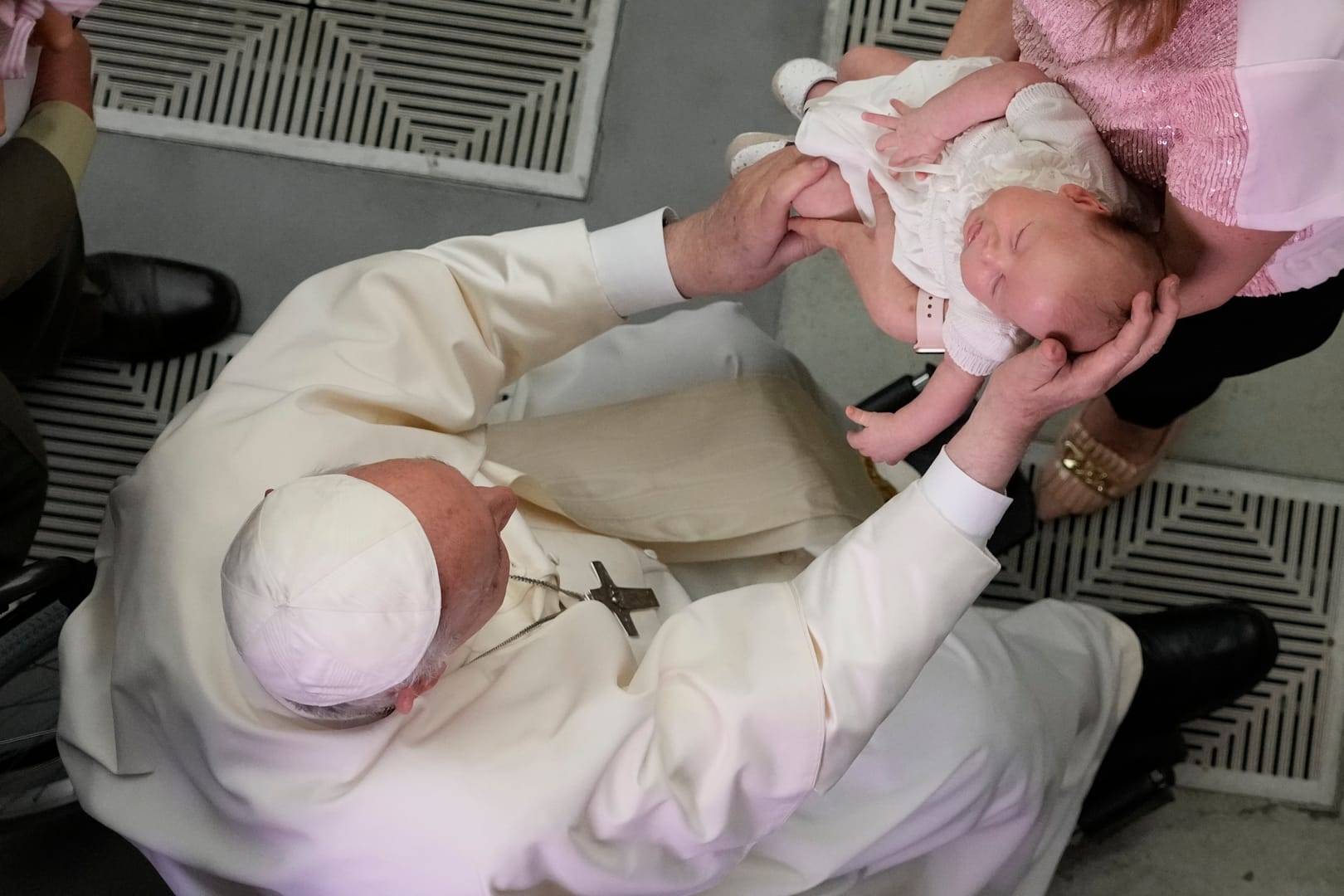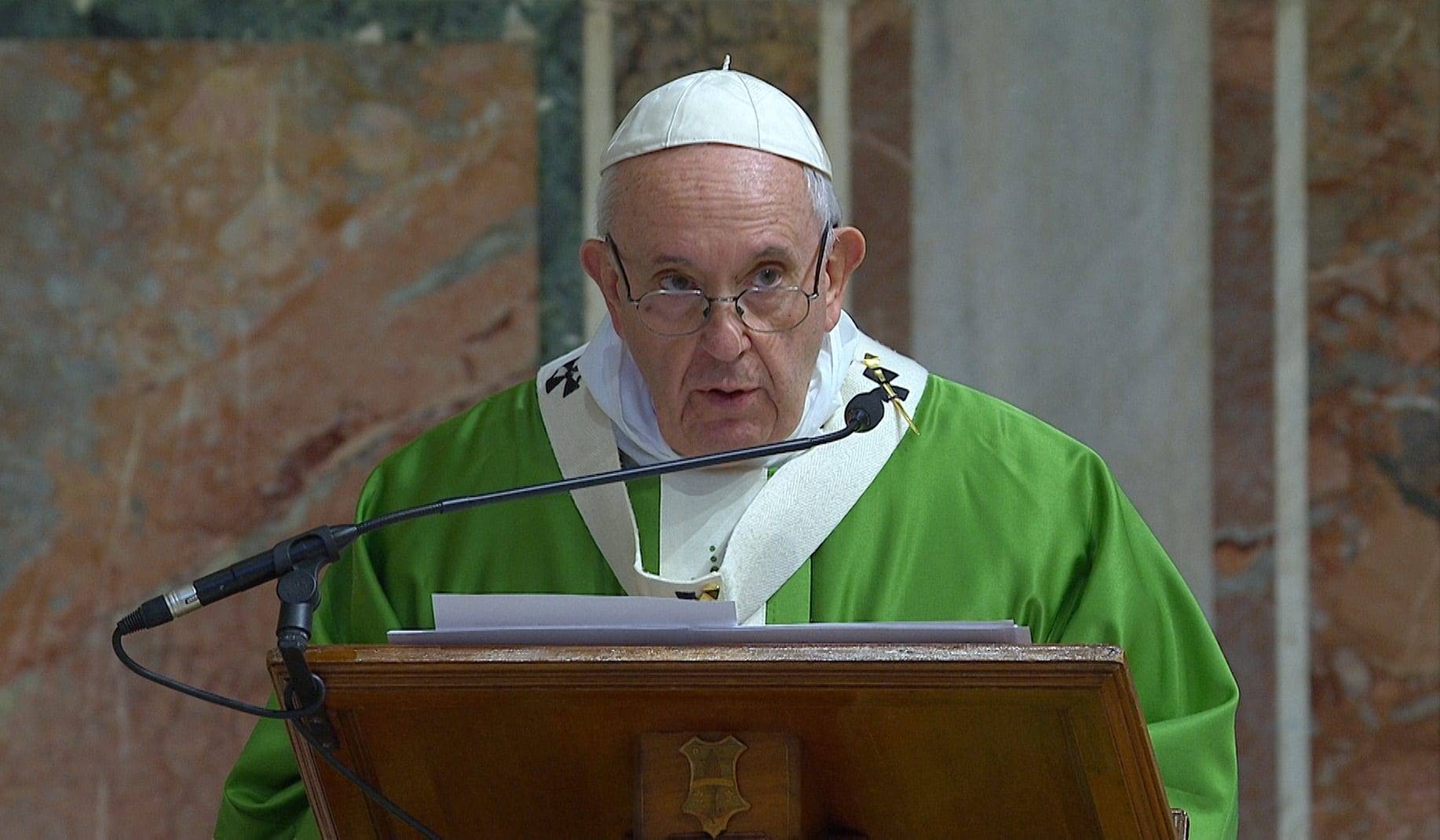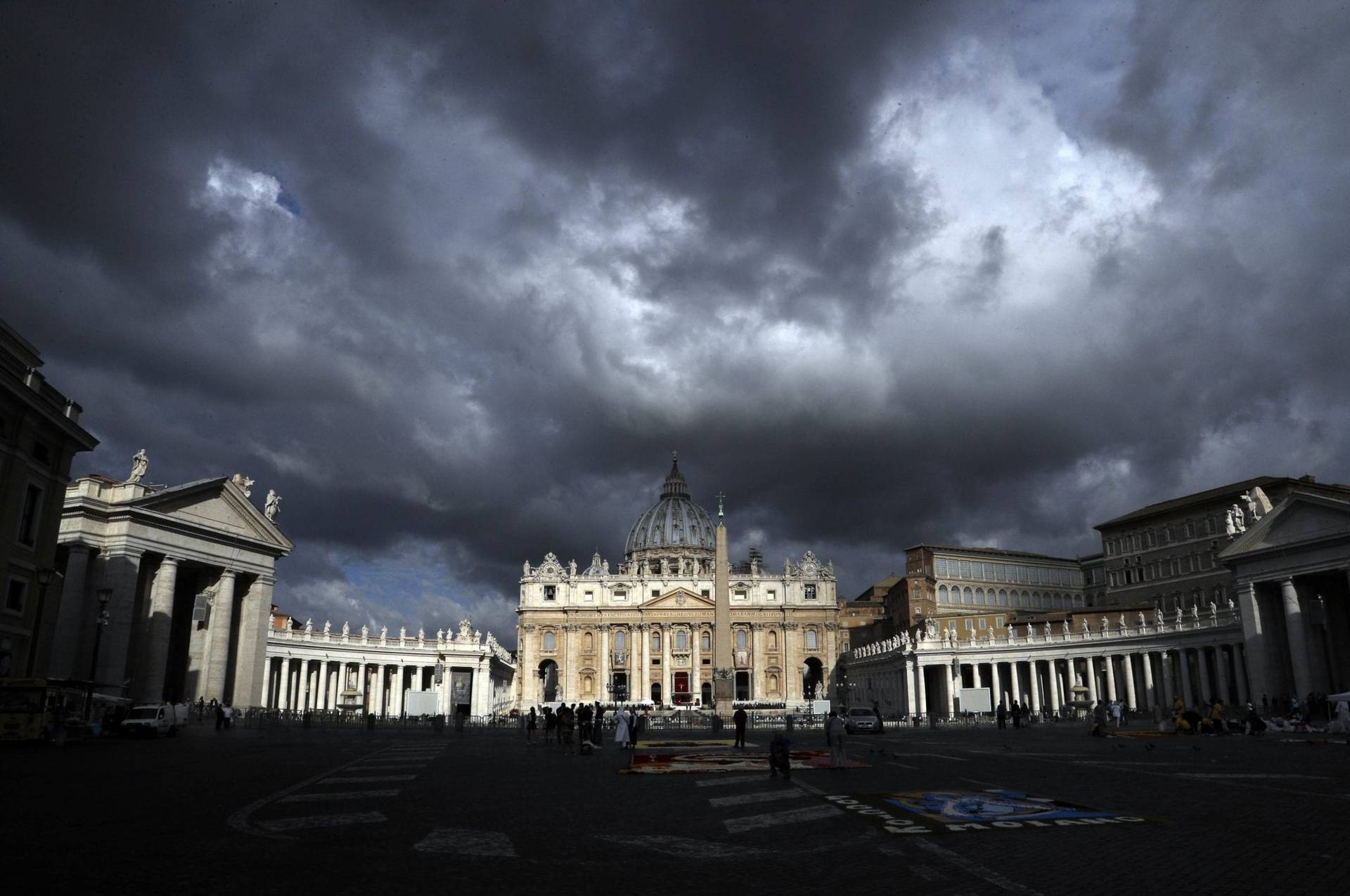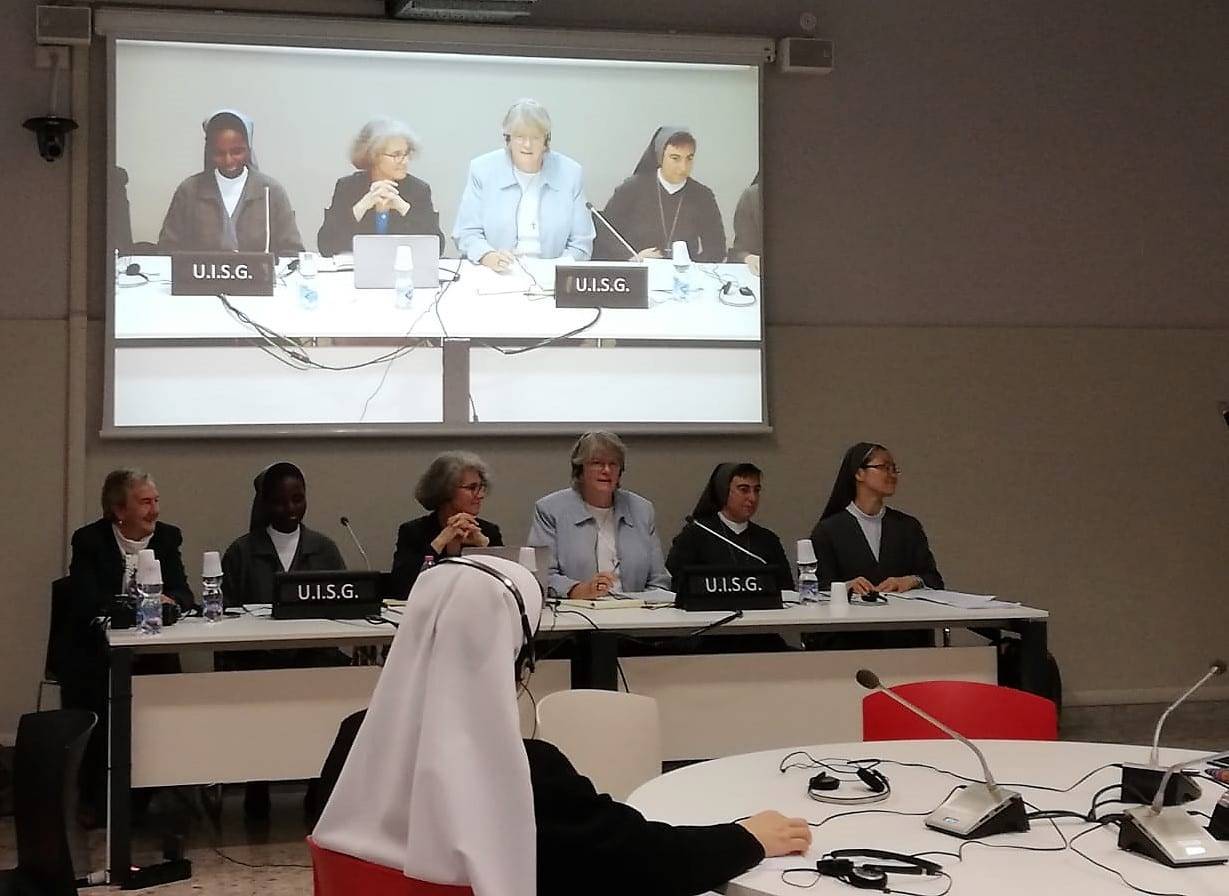ROME – In their second round of small group reports released Tuesday, participants in the Vatican’s month-long youth summit offered a clearer picture of their emerging priorities – which range from youth in gangs to the pastoral situations of same-sex couples, as well as relations between elderly and the young, outreach to the “nones,” and the risks of sexual and other forms of abuse.
The desirability of having lay people and married couples, not just clerics, involved in the process of priestly formation was also highlighted.
The reports are generally considered the most reliable index of the main issues percolating in a synod and are formally styled as reactions to the meeting’s working document, or Instrumentum laboris.
The summit, formally called the “Synod of Bishops on Young People, Faith and Vocational Discernment,” gathers roughly 260 bishops from all over the world along with other participants, including 36 young people. It’s the third synod of the Pope Francis era, following two assemblies on the family in 2014 and 2015.
Spanish-speakers
The first group is headed by Honduran Cardinal Oscar Rodriguez Maradiaga, who sits on the pope’s council of cardinal advisors. It touched on the reality of young people who are members of gangs, saying that their reality cannot be ignored.
“Their only love is that of the group, and it’s not easy to enter in these circles that are so closed and it’s also not easy for the young people to leave these groups,” they said.
In the same paragraph, the group spoke about “what to do and how to act with homosexuals, who cannot be left out of our pastoral care, and other realities such as marriage between homosexuals, surrogate pregnancy, adoption by same-sex couples: All current issues that are propagated and funded by international governmental institutions.”
The group also spoke about the need to propose the theme of youth as a “theological place” from which God, through youth, is saying something to the Church. Youth, they argued, is a theological place not only because “it’s life” but because of the “situation of cultural fracturing young people are living in this era of epochal change, the introduction into a digital world without norms.”
Another issue the group reflected upon is “singles,” describing it as a “complex issue,” and discernment is needed to understand if the growth of people living by themselves is due to a sociological phenomenon or a vocational one, if it’s assumed as an option or for “simple comfort, if it’s a surrender to the service of others or if it’s pure and hard egoism.”
Either way, they write, “they deserve a hopeful reflection,” and a word of support to those who have chosen this path, many of whom are close to the Church. They also acknowledge that there are some who might be single because their marriages failed.
The second Spanish group, moderated by Cardinal Luis Ladaria Ferrer, head of the Vatican’s Congregation for the Doctrine of the Faith, had a paragraph dedicated to young people who have “special educational needs,” understood as the entire “range of frailties – physical, mental, intellectual, socio-cultural – and that despite their limitations are active subjects of transformation in their environments. This limitation is a possibility that opens up relations of solidarity and reciprocity, and therefore is a gift for their communities. The Church must receive them, and include them with courage.”
They also made an appeal to those who are writing the final synod document to make reference to the “Beauty and Joy of Love,” expressing in a positive way what is involved with a human love lived from God.
“At the same time, we understand that fragility and sin can be expressed in a suitable way as an expression of our fragile human condition,” the group wrote. “When we talk about youth we can’t start from a negative vision, because not all young people live that reality. For joy to sprout in a young person he or she must feel loved, welcomed by a family, by a community, and in this way be aware of his or her possibilities in order to discover and value his or her body and also integrate its limitations.”
The group also said they find a “very large gap” in the Instrumentum laboris when it comes to talking about faith, the process of faith formation, and the encounter with Jesus, saying these issues are “treated very poorly” in the document.
English-speakers
In seeking to better refine the working document’s understanding of vocation, one English language group suggested a distinction between “‘vocations of being’ (calls to particular states of life) from ‘vocations of doing’ (calls to a particular profession, career, apostolate, etc.).”
There was also a suggestion that since the final document would not be limited to Catholics, but to “all people of good will,” attention must be paid to the “nones” — individuals without religious affiliation — and hence, the need to “consider the fundamental human vocation as a vocation to love.” The group went on to add for Christians, that love “bears a name, and that name is Jesus.”
As for the particular vocations of young people, one group said that the document should specify “the particular and abiding grace of being young,” as a special stage in life.
Multiple groups noted the need for greater attention to the sacrament of Confirmation as being essential to the desire for “a new Pentecost” within the Church, where Confirmation is not seen as a “graduation” from Church life, but rather a moment of rejuvenation.
Another sacrament — that of Reconciliation — was presented as being fundamental to the process of accompaniment, with one group noting that the sacrament provides a special or particular type of accompaniment, which is spiritual and psychological in nature.
A more traditional, or “ordinary,” type of accompaniment is found in the family said one group. “Usually parents are the people who know their child best and are the ones children trust,” they wrote.
Recommendations were also made for a special section on accompaniment for engaged and newly married individuals, similar to the already existing section on accompaniment for those entering religious life.
While accompaniment “should be done in a climate of friendliness, trust and warmth,” one group emphasized that “objectivity” should not be lost in the process.
Similarly, another group highlighted the language regarding “conscience,” noting it should not be individualistic, but rather something done in community. “We felt that the introduction of the simple phrase, ‘a well-formed conscience’ might serve to hold off any concerns regarding subjectivism,” the group added.
Lastly, another emergent theme among the English language groups was that of “joy” — beginning with the very joy found within the Synod hall itself.
Once again, the physical presence of young people was mentioned, noting that the room “came alive,” as they spoke. One group reported of a bishop who remarked, “I never realized a Synod could be so much fun!”
Within the reports, there was discussion as to how holiness and self-giving should be a joyful exercise. “It is not about gritting one’s teeth and doing one’s duty,” one group concluded.
Another group put forth that “It is important to remind ourselves that a life of faith and joy in Christ is not impeded by any human limitations of mind or body, by disabilities or social circumstance.”
German-speakers
In their report, German prelates rejected the idea of Christian life in the 21st century as a “ghetto”, voicing a “fundamental yes” to the contemporary secular world. However, they called for the ability to “discriminate” in thinking about the world, including forces that “make many young people more insecure or exaggerate the experience of alienation.”
Within that world, the Germans called for humility in engaging young people.
“We as the elders want to resist the temptation that we already know everything about how the lives of young people should unfold and what their successful life should be like,” they said, insisting on the importance of listening to youth and seeking “traces of the presence of God” in them.
However, they said that doesn’t mean elders have nothing to offer.
“We also want to be companions who learn to help others with our own, longer life experience, who have already learned a little more in retrospect of how the contexts, experiences, decisions and supposed coincidences in a life blend into the form of a unique lived life.”
God, they aid, “thinks big” for every person.
“We believe that, like a loving artist, he works on the form of every heart so that he himself can take more and more residence within it,” they said.
On the subject of vocations, the Germans stressed that it’s not a “one-time” event.
“We believe the sense of vocation in a person can grow and deepen through concrete engagement with reality, the acceptance of responsibility, the encounter with fellow human beings, the concrete encounter with Christ in prayer, in His Word, in the sacraments, and in the community experience of the Church,” they said.
Finally, in discussing the sorts of “accompaniment” young people need from the Church, the German prelates called for vigilance about the possibility of abuse.
“It’s especially important for us to point out the danger of abuse in the company: the abuse of power, the abuse of trust, the abuse that exists in the creation of an unfree relationship of dependency or in sexual violence,” they said.
The German group was led by Bishop Felix Genn of Münster, with Bishop Stefan Oster of Passau (the native diocese of Pope emeritus Benedict XVI) acting as the relator, meaning the person who prepares the report.
French-speakers
French bishops focused on three points: accompaniment, discernment and vocations. Two of the three language groups emphasized the gift that young people represent, not only within the Catholic Church but in society as a whole.
“Our Church, with a rich tradition regarding education and accompaniment (too rarely underlined, in our opinion, in the Instrumentum Laboris), must be able to walk with young people on the path to holiness,” one observation reads.
In terms of accompaniment, the bishops emphasized the personal and community aspect of the term and the importance of finding appropriate methods to inspire faith in young people in an increasingly globalized and multicultural world.
The second part of the document, they said, “concentrates too much on the personal dimension of accompaniment and ignores the fundamental role of families and youth groups in terms of developing their faith.”
Emphasis was placed on the need to establish a balance between bringing youth closer to the Catholic faith and respecting their personal freedom and independence. Whether it be in a group or individually, accompaniment “cannot be improvised,” the bishops wrote, and they suggested that special formation courses for youth ministry and supervising groups be put in place.
Providing continued formation is important, the French groups said, as well as providing opportunities for young people to gain responsibility within the Church for the “explicit mission of transmitting the faith.”
Speaking on vocations, the bishops said that the Instrumentum laboris at certain points seems to point to an excessively clerical understanding of the terms, adding that instead vocation is a calling for all people of faith given the right inclinations and reflection.
Vocation, they wrote, “is the source of faith, the justification and ultimate end of human existence, of the Christian life in the Church. Furthermore, this divine vocation is addressed to all human beings. It’s not reserved to members of the Church.”
On discernment, the bishops observed that in allowing young people to receive the gift of faith, “they will be called to live the experience of the passage through the cross, every day of their lives, personally and in the Church.”
Italian-speakers
In the Italian language groups, the second round of small group reports focused largely on the importance of accompaniment, and what that looks like in different contexts. Most groups placed a heavy emphasis on scripture, and mention was also made of the need to be realistic about where young people are at and to be aware of both the positive aspects they bring but also the challenges they face.
The first group, led by Cardinal Angelo De Donatis, Vicar of Rome, and Archbishop Vincenzo Paglia, head of the Pontifical Academy for Life, focused on what the Church refers to as the universal call to a life of holiness, justice and peace, and the importance of accompanying young people.
Scripture was a large part of the group’s reflections, with the story of the biblical figure of Samuel proposed as an image of how God calls a person, with patience and respecting their freedom.
In terms of accompaniment, the group said youth must “above all listen to God,” but need good examples who are able to support, encourage and guide them in the decisions they make, while at the same time being aware of their weaknesses.
In the second group, led by Cardinal Fernando Filoni, prefect of the Vatican’s Congregation for the Evangelization of Peoples, and Archbishop Bruno Forte, a member of the synod’s organizing council, concern was raised that in at least one part of the synod’s working document, there was an “excessively optimistic” vision of the reality of young people.
“It is necessary to keep in mind that nature after original sin is wounded, and it is necessary to avoid every possible claim of self-sufficiency, rejecting the idea that a self-realization of man is enough,” they said, adding that everyone, youth and those who accompany them, are sinners who have been forgiven.
They also spoke of accompaniment and the importance of helping walk young people through their questions and doubts, adding that the time of youth “is not only a blessing, but is also a challenge, and our weaknesses must be dealt with.”
The group also stressed the need for adequate preparation for those who accompany young people, which they said should not just be priests, but can be “any baptized person able to commit themselves in service to the youth with generosity, faith and appropriate preparation.”
In the third group, led by Cardinal Gianfranco Ravasi, prefect of the Vatican’s Council for Culture, and Bishop Pietro Maria Fragnelli of Trapani, Italy, attention was paid to the diversity of the challenges young people face depending on where they are, with specific mention made of Iraq, Mexico and a religious sister from Asia.
They spoke of uniting “enthusiasm and risk” in the faith, with references to scripture and the Second Vatican Council, particularly biblical passages that refer to the mission of the disciples.
No matter who a person is, where they are from, or what rite they belong to, “the mission of the Church continues to be that of valuing the strength of young people and supporting their weakness,” they said, adding that input from auditors and delegates helped to deepen their reflections on this point.
Noting how many young people, believers and non-believers alike, have difficulty making decisions and choose to believe “in my own way,” rather than as part of a community or a specific denomination, the group said youth must be helped and accompanied “with a lot of respect and trust,” and, if necessary, “also with some psychological help and with the appropriate experience of service.”
Mention was also made of the role lay movements play in getting young people involved, especially those who might have previously been distant from the Church.
Portuguese-speakers
The Portuguese-speaking group, headed by Cardinal João Braz de Aviz, wrote that the faith cannot be “reduced to morality,” and that the Christian proposal must instead be rooted in concrete experiences.
The crisis of vocations, they argued, begins with a crisis of faith. They also write that many times faith today is transmitted through “nontraditional ways,” such as parents awakened to the faith by their children, and many young people finding their faith through their peers and not in the family.
On a human, anthropological level, they argued, in the heart of every young man and woman, there’s an “aspiration to happiness, a desire to be considered, valued and loved.”
“In a context of uncertainty, precariousness and insecurity, they need the closeness of a Church that is present in their lives especially from other young people who, from their experience of faith, can warm their cold and indifferent hearts with their own availability to welcome, walk together and give them reasons for hope.”
The person of Jesus, the Portuguese group wrote in their reflections of the second section of the Instrumentum laboris, can be a “key response to the challenges” young people face today, and a “sign of hope” as they try to find meaning for their lives.
Regarding affectivity and sexuality, the group spoke about the differences between the teaching of the Church and what young people practice today, acknowledging that many people ignore, others question and others still “are influenced by ideology or scientific information in fields where there is not always a consensus.”
“Starting from basic principles of Christian teaching (such as the value of human life and the dignity of the body), it is possible to open roads of dialogue with non-believers,” the group wrote. “The doctrine of the Church in this field is beautiful and rich. It is necessary to present it with clarity, believing in the force of attraction contained therein and surpassing the vision of those who see it only as something rigid.”
The group also underlined the importance of overcoming the tendency toward clericalism and “spiritual worldliness” in seminary formation, educating future priests “for humility and service. The presence of lay people, married couples and not only other clerics in the structures of formation would be very helpful.”
This story will be updated throughout the day.


















